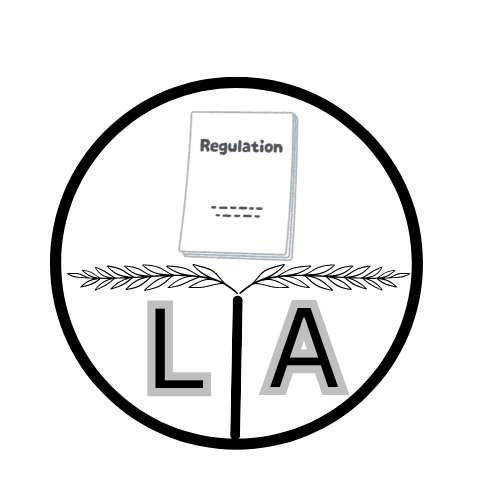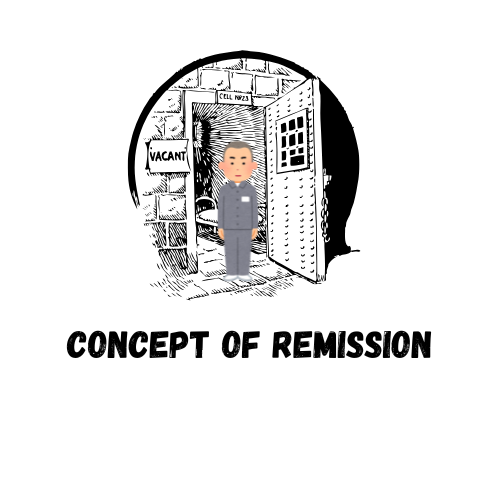Concept of remission
Concept of remission
Concept of remission in Prison Administration
Concept of remission
Concept of remission
Welcome to Law Adhoc Tutorials!
These notes are in easy language and easy to remember.
Law Adhoc Tutorials is an education platform. It helps law students get high quality notes to make their study easier. Law Adhoc Tutorials provides full and completes notes for free for each subjects of law.
Concept of remission
Concept of remission
CONCEPT OF REMISSION
Concept of remission
Introduction
Remission refers to a reduction in the length of a prison sentence, distinct from furlough and parole, which involve temporary releases. While furlough and parole offer breaks from prison life, remission directly shortens the sentence’s duration without altering its fundamental nature. In remission, the prisoner is granted a specific release date, effectively becoming a free person in the eyes of the law. The original sentence remains intact, but the prisoner is relieved of serving the remaining portion.
Section -16(01)of model prison manual, 2003
The concept of the remission system aims at the reformation of a prisoner. The scheme is intended to ensure prison discipline and good conduct on the part of the prisoners and to encourage them to learn and better work culture, with the prospect of their early release from prison as an incentive.
Remission is a concession, which can be granted to prisoners by the State Government or by the Head of the Prison Department and Superintendent of Prisons.
Purpose – Remission is intended to be an incentive for good behavior and work. It should be granted on the basis of an inmate’s behavior, work,and general response to various institutional activities.
Concept of remission
Section 432 of the Criminal Procedure Code, 1973
Section 432 of the Criminal Procedure Code, 1973 gives the Government the power to suspend or reduce sentences for convicted individuals. This can happen fully or partially, and either with or without conditions. When a request for suspension or reduction is made, the Government consults the Judge from the trial. The Judge must provide reasons and a certified copy of the relevant trial record.
If the Government believes that the conditions for suspension or remission have not been met, it may revoke the suspension or remission. In such cases, the individual can be arrested by any police officer without a warrant and remanded to serve the remaining portion of the sentence.
The President and Governor possess the sovereign power of pardon, granted by the Constitution.
Presidential Power (Article 72):
The President can grant pardons, reprieves, respites, or remissions of punishment. The President can also suspend, remit, or commute sentences for court-martial offenses, Offenses related to the Union government’s executive power, and Death sentences.
Governor’s Power (Article 161):
- The Governor can grant pardons, reprieves, respites, or remissions of punishment.
- The Governor can suspend, remit, or commute sentences for offenses related to the State’s executive power.
- The scope of the President’s pardoning power under Article 72 is broader than that of the Governor’s under Article 161.
Kinds of Remission
Remission will be of the following types:
- Ordinary remission
- Special remission
- State Government remission
Ordinary Remission
Authority to grant ordinary remission: The Superintendent, or an officer nominated by him on his behalf, is authorized to grant ordinary remission.
Eligibility: The following types of convicted prisoners shall be eligible for ordinary remission:
- Prisoners who have substantive sentences of two months or more are eligible for certain considerations regarding remission.
- Prisoners who are sentenced to simple imprisonment for two months or longer and volunteer for work can also qualify for benefits.
- Prisoners doing maintenance work, like sweeping or cooking on Sundays and holidays, are also eligible, regardless of their sentence length.
- Prisoners hospitalized for less than one month for a non-willful injury or illness may receive special consideration. If hospitalized for more than one month, they only get remission for good behavior.
Special remission
Authority to grant special remission: Superintendent of the prison concerned and the Inspector General/Head of the Prisons Department will be the competent authorities to grant special remission.
Criteria to grant special remission:
The following criteria can be used to grant special remission to inmates who qualify for ordinary remission:
- Saving the life of a government employee, prison visitor, or another inmate.
- Protecting a government employee, prison visitor, or inmate from danger.
- Stopping or helping to stop a prisoner from escaping, catching prisoners trying to escape, or giving important information about escape plans.
- Helping prison staff in emergencies like fires, riots, or strikes.
- Reporting or helping to prevent serious violations of prison rules.
- Making significant contributions to cultural activities or education.
- Doing excellent work in jobs like industry, agriculture, or vocational training.
State Government Remission
Remission granted by the State Government shall be called State Government Remission.
Eligibility – The State Government remission can be awarded to such prisoners, or categories of prisoners, as the State Government may decide.
In the case of prisoners who, at the time of general grant of State Government remission, are released on temporary or emergency release, specific orders of the State Government about the award of this remission to such prisoners are necessary.
Procedure of Remission
Remission Committee members should assist the Superintendent with granting remission. The Superintendent’s decision is final. The committee should meet in the last week of each month or as needed.
(i) The committee must meet regularly to ensure timely remission. Special remission should be granted at least seven days before a prisoner’s release.
(ii) The Superintendent must approve and record remission in the Remission Register and the prisoner’s History Ticket immediately upon granting.
(iii) Inmates with sentences of two months to five years should receive monthly remission. Those with sentences over five years, including life sentences, should receive remission every three months.
(iv) Ordinary remission is for full calendar months only, not partial months.
(v) Special remission can be granted for any part of a year.
(vi) A prisoner can earn a maximum remission of half their total sentence from the conviction date.
(vii) Remission for court-martial sentences follows the same rules as for other prisoners.
Mahender Singh v. State of Haryana
In Mahender Singh v. State of Haryana, the Supreme Court said that the Constitution does not directly grant convicts a right to remission, but they must be considered for release. This protects their rights under Articles 20 and 21, which safeguard against double punishment and guarantee the right to life and personal liberty. The ruling highlights the importance of respecting these rights in remission and parole decisions.
Concept of remission
Vocational Training for Prisoners notes : https://lawadhoctutorials.com/vocational-training-for-prisoners-in-india/
Rights and Duties of Prisoners notes :- https://lawadhoctutorials.com/rights-and-duties-of-prisoners/
Model Prison Act Notes : https://lawadhoctutorials.com/model-prisons-act-2003/
Concept of remission
All subjects law notes : https://lawadhoctutorials.com/subject/
All subjects law notes in pdf : https://lawadhoctutorials.com/notespdf/
Law of torts lecture link on YouTube: https://youtu.be/fRx-i5fk3jo?si=QPnyduoa3IeZoI5W
Free and easy to access law notes. The law notes are available for all law subjects. Please check the below-mentioned list for complete law notes.
Concept of remission
Click on the specific subject to view its notes.


